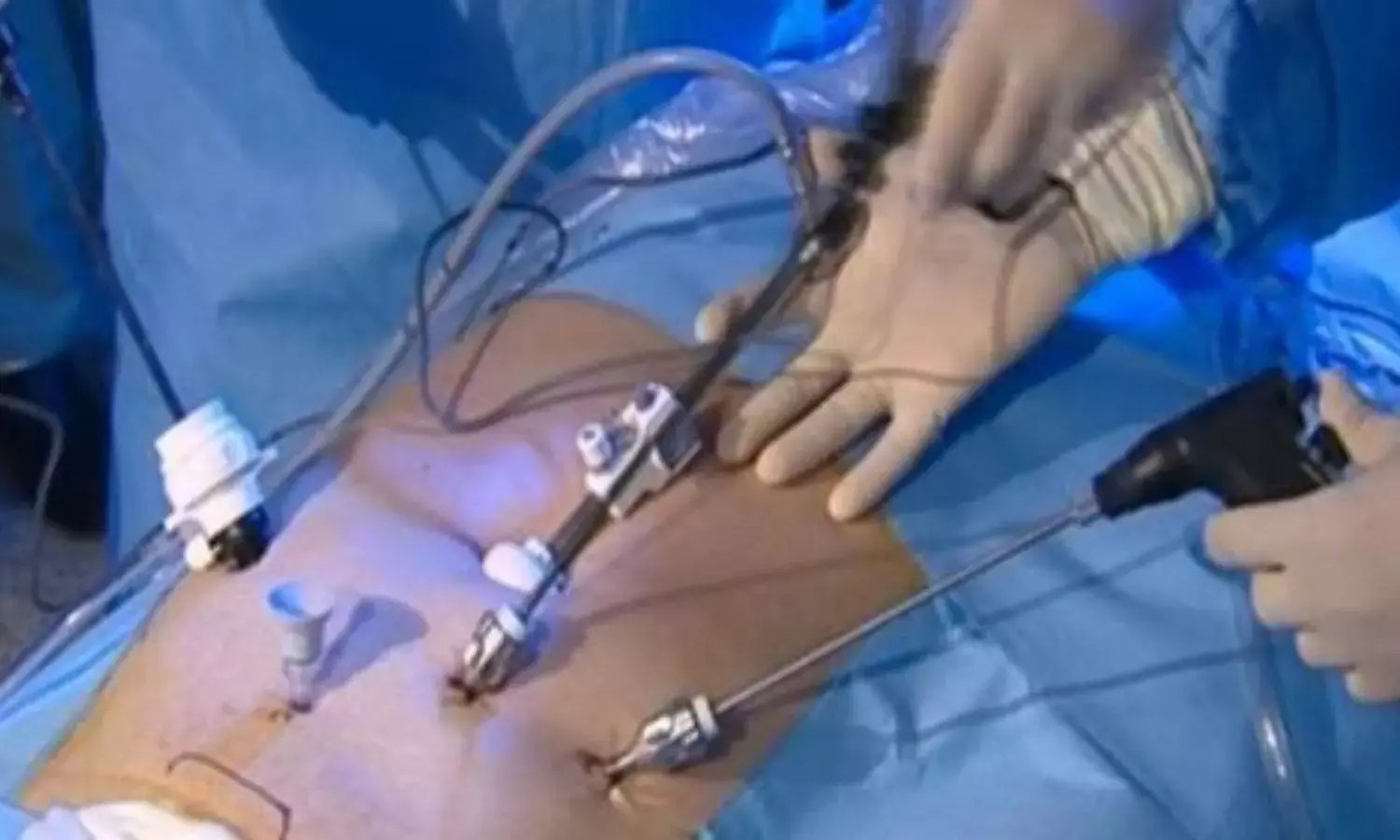- Home
- Medical news & Guidelines
- Anesthesiology
- Cardiology and CTVS
- Critical Care
- Dentistry
- Dermatology
- Diabetes and Endocrinology
- ENT
- Gastroenterology
- Medicine
- Nephrology
- Neurology
- Obstretics-Gynaecology
- Oncology
- Ophthalmology
- Orthopaedics
- Pediatrics-Neonatology
- Psychiatry
- Pulmonology
- Radiology
- Surgery
- Urology
- Laboratory Medicine
- Diet
- Nursing
- Paramedical
- Physiotherapy
- Health news
- Fact Check
- Bone Health Fact Check
- Brain Health Fact Check
- Cancer Related Fact Check
- Child Care Fact Check
- Dental and oral health fact check
- Diabetes and metabolic health fact check
- Diet and Nutrition Fact Check
- Eye and ENT Care Fact Check
- Fitness fact check
- Gut health fact check
- Heart health fact check
- Kidney health fact check
- Medical education fact check
- Men's health fact check
- Respiratory fact check
- Skin and hair care fact check
- Vaccine and Immunization fact check
- Women's health fact check
- AYUSH
- State News
- Andaman and Nicobar Islands
- Andhra Pradesh
- Arunachal Pradesh
- Assam
- Bihar
- Chandigarh
- Chattisgarh
- Dadra and Nagar Haveli
- Daman and Diu
- Delhi
- Goa
- Gujarat
- Haryana
- Himachal Pradesh
- Jammu & Kashmir
- Jharkhand
- Karnataka
- Kerala
- Ladakh
- Lakshadweep
- Madhya Pradesh
- Maharashtra
- Manipur
- Meghalaya
- Mizoram
- Nagaland
- Odisha
- Puducherry
- Punjab
- Rajasthan
- Sikkim
- Tamil Nadu
- Telangana
- Tripura
- Uttar Pradesh
- Uttrakhand
- West Bengal
- Medical Education
- Industry
Robot-assisted prostatectomy improved continence recovery and erectile function post-surgery: Study

A recent study published in the World Journal of Urology, researchers have compared the outcomes of open retropubic radical prostatectomy (ORP) and robot-assisted radical prostatectomy (RARP) for treating prostate cancer. The study was conducted at a single tertiary referral center from 2008 to 2022 and analyzed data from a substantial cohort of 18,805 patients.
The research evaluated oncological, functional and surgical outcomes that were associated with both ORP and RARP procedures. After utilizing a propensity score-based matched cohort, the impact of the surgical approach on biochemical recurrence-free survival, salvage radiotherapy-free survival and metastasis-free survival was examined through log-rank tests and Kaplan–Meier analysis. Intraoperative and postoperative surgical outcomes were assessed with continence rates at 1 week, 3 months, and 12 months, as well as erectile function at 12 months post-surgery.
The results of the study revealed no statistically significant differences in oncological outcomes between the two surgical approaches. However, RARP demonstrated a slight advantage in terms of urinary continence recovery, with statistically significant differences observed at both the 3-month and 12-month marks. Also, the continence rates at 3 months were 81% for RARP when compared to 77% for ORP, and at 12 months, 91% for RARP when compared to 89.3% for ORP, respectively.
This study highlighted a significant disparity in erectile function outcomes, with RARP showing a markedly higher rate of erectile function recovery when compared to ORP. Also, RARP resulted in a 60% erectile function rate when compared to 45% for ORP that signifies a marked improvement in postoperative sexual function associated with the robotic approach. While both ORP and RARP demonstrated comparable oncological outcomes, RARP showed advantages in terms of urinary continence recovery and significant improved erectile function post-surgery.
Reference:
Ambrosini, F., Knipper, S., Tilki, D., Heinzer, H., Salomon, G., Michl, U., Steuber, T., Pose, R. M., Budäus, L., Maurer, T., Terrone, C., Tennstedt, P., Graefen, M., & Haese, A. (2024). Robot-assisted vs open retropubic radical prostatectomy: a propensity score-matched comparative analysis based on 15 years and 18,805 patients. In World Journal of Urology (Vol. 42, Issue 1). Springer Science and Business Media LLC. https://doi.org/10.1007/s00345-024-04824-6
Neuroscience Masters graduate
Jacinthlyn Sylvia, a Neuroscience Master's graduate from Chennai has worked extensively in deciphering the neurobiology of cognition and motor control in aging. She also has spread-out exposure to Neurosurgery from her Bachelor’s. She is currently involved in active Neuro-Oncology research. She is an upcoming neuroscientist with a fiery passion for writing. Her news cover at Medical Dialogues feature recent discoveries and updates from the healthcare and biomedical research fields. She can be reached at editorial@medicaldialogues.in
Dr Kamal Kant Kohli-MBBS, DTCD- a chest specialist with more than 30 years of practice and a flair for writing clinical articles, Dr Kamal Kant Kohli joined Medical Dialogues as a Chief Editor of Medical News. Besides writing articles, as an editor, he proofreads and verifies all the medical content published on Medical Dialogues including those coming from journals, studies,medical conferences,guidelines etc. Email: drkohli@medicaldialogues.in. Contact no. 011-43720751


